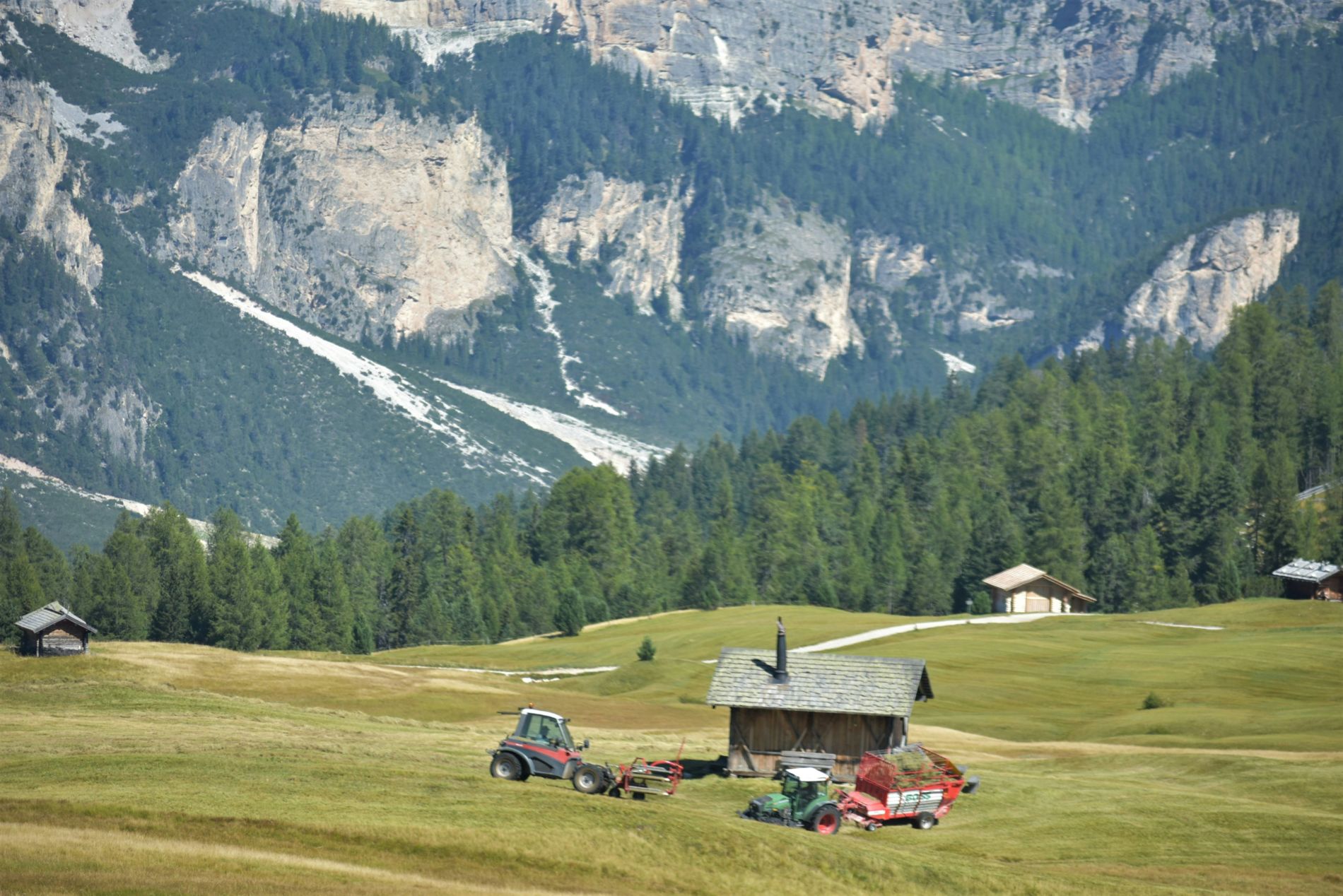In a bid to reduce the environmental impact caused by the ski tourism industry, energy use and land take, mountain resorts, ski areas, ski professionals and local officials are going the extra mile in their efforts to come up with new development strategies. As they look at diversifying their activities, the idea of recovering organic waste in synergy with the mountain farming sector not only ties into the environmental transition, but also comes across as a local and circular opportunity that clearly warrants further investigation.
Trailblazing resorts and collective initiatives
By transforming their waste into resources, mountain resorts are helping cut CO2 emissions, improve activities across the ski area and promote a more sustainable form of tourism in the mountains.
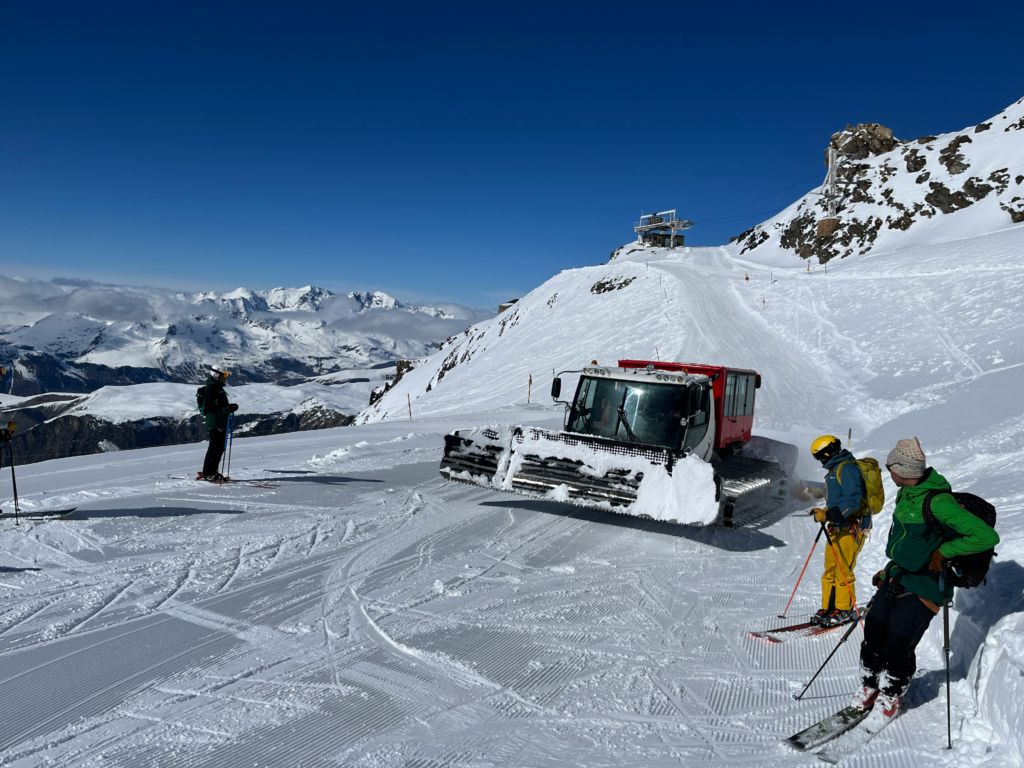
@christian-ter-maat-NFoyeoLA
In 2025, some of the world’s leading resorts – including the Kitzbühel /Kirchberg ski area in Austria, the Levi ski resort in Finland, and Les Arcs, Tignes and Méribel in France – joined forces by creating the “Global Sustainability Ski Alliance”, representing a first in the ski industry. The iconic resort of Les Arcs perfectly illustrates the philosophy behind this alliance. In 2025, it inaugurated 50 km of eco-designed pistes to harmonise with the area’s natural topography and reduce any earthworks to a minimum. As in many other resorts, the new ski lifts are powered by hydroelectric and solar energy, while the snow groomers run on biofuel derived from organic waste, i.e. a fully renewable biofuel (HVO) produced from used cooking oil and grease waste without any palm oil. This model slashes energy bills by 40% and protects snow resources, while delivering an authentic and mountain-friendly ski experience. As such, every snowflake covering the ski area is preserved, meaning that skiers and riders are treated to the best possible snow conditions. Resorts are propelling environmental issues to the top of their priority list and launching on-the-ground initiatives to shrink the ecological footprint of their activities.
In a similar vein, holidaymakers, skiers, riders and hikers are being encouraged to sort their waste in every resort, with clearly identified collection points across the ski area. This new organisation is instrumental in curbing littering and improving the quality of the environment for everyone.
Waste: the new resource for resorts
Ski resorts are transforming waste treatment into a priority as a way of protecting their unique environment. A prime example is the “Zero Waste Mountain 2030” policy involving all local stakeholders, including tourist information centres, ski areas, ski schools, economic and social players, and local authorities. Waste collection operations combined with collaborative workshops help define specific action plans tailored to each resort and measure the progress achieved every year.
Learn more about the initiatives spearheaded by Mountain Riders
Converting waste into resources is a focal part of this new strategy for recovering and recycling waste in the mountains:
- Local composting: organic waste from mountain restaurants and accommodation providers is recovered and recycled as compost for improving soil quality across alpine pastures. This virtuous circle also supports the mountain farming community with its determination to use local recovery systems and harness organic waste to fertilise poor or sloping soil. This process reduces the amount of chemical fertiliser, while strengthening local biodiversity.
- Anaerobic digestion: this process is harder to implement in high-mountain areas, since it calls for investments and specialised logistics. Nevertheless, partnerships have been forged with organisations in the valleys that possess agricultural or territorial anaerobic digesters. These digesters produce biogas and digestate, which can be used to fertilise crops (hay, market garden produce, small fruits, and so on). Some resorts, such as Chamonix, Les Gets and Arêches-Beaufort, are already taking steps to tap into the synergistic ties between waste and local agriculture.
- Biofuels: several resorts, including Les Arcs, are now using waste-derived fuels to power their snow groomers and service vehicles, which in turn lowers their carbon footprint and their impact on the ski area.
Tourism, activities and awareness-raising: promoting sustainable mountain tourism
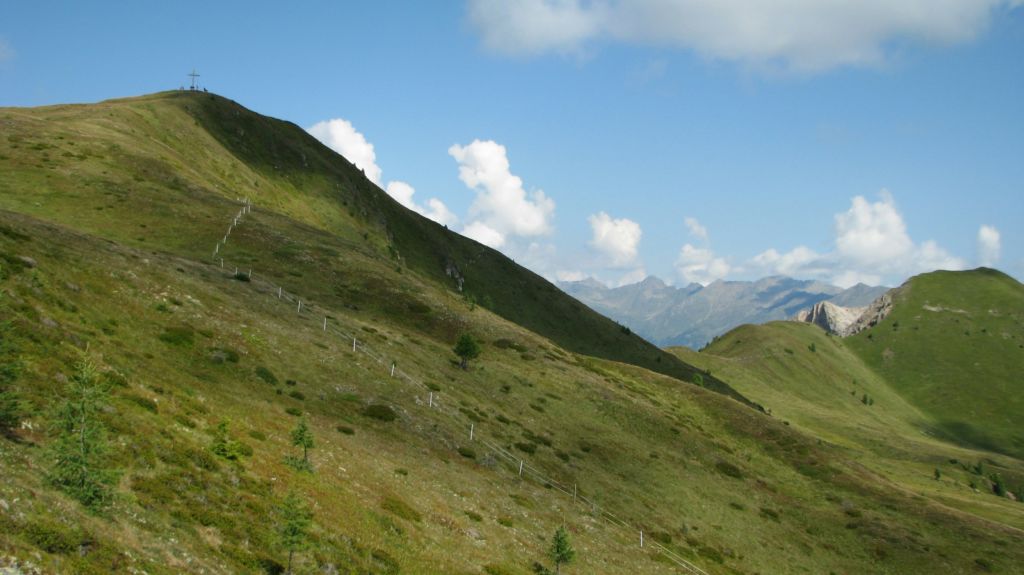
@ratomir-draganjac
The strategy of transforming waste into resources is being bolstered by a large-scale campaign to raise greater awareness among skiers, holidaymakers and professionals. Resorts that have obtained “Flocon Vert” certification or taken similar commitments to improve their environmental performance are organising ever more workshops and activities to introduce visitors to the local wildlife and plant-life, as well as the challenges of the circular economy.
The activities available within the resorts are now designed to minimise their environmental impact. Skiers, riders and families are invited to take part in educational programmes offering a clearer insight into waste management and sorting, while theme-based events highlight best practices.
Results and outlook for the ski areas
Tangible results have already been achieved, including a fall in CO2 emissions, a reduction in the amount of littering, improved energy performance, and preserved mountain landscapes. With occupancy rates remaining stable throughout the winter 2025 season, France’s resorts are living proof that action can be taken to respect the environment while still delivering a quality ski experience and attracting tourists.
Ski areas are investing in innovative solutions to reach their ambitious target of zero littering by 2030. These initiatives are giving the mountains an even stronger foothold in the French and international tourism sector, while showcasing their wealth of natural and cultural resources.
Check out the latest innovations in the Innovation Book 2025 published by Mountain Planet
By turning waste into a resource, especially for the farming community, alpine ski resorts and areas are paving the way to a sustainable tourism model driven by innovation, cooperation and respect for the natural heritage, while building a greener future for every resort and for all mountain activities.
a lire également
Environment
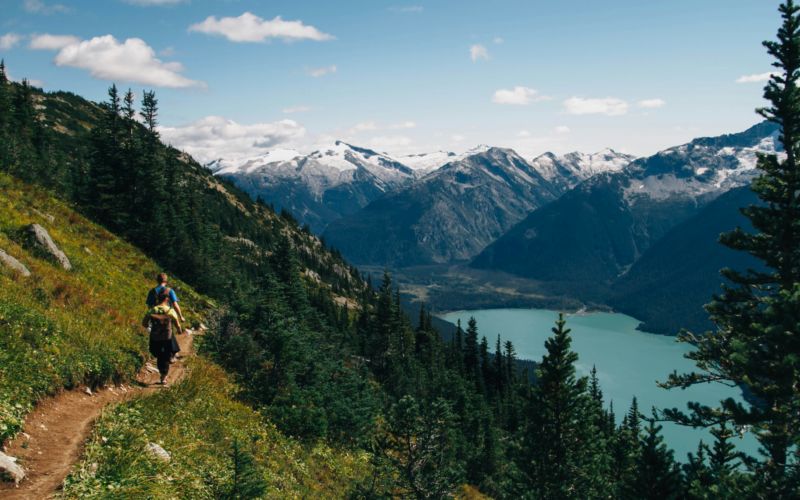
2 September 2024
Summer Activities: What Impact Do They Have on Mountain Ecosystems?
The rise of year-round tourism goes hand in hand with outdoor activities, but these can weaken mountain ecosystems. How are mountain regions tackling these ecological challenges? What eco-friendly practices are ...
Environment
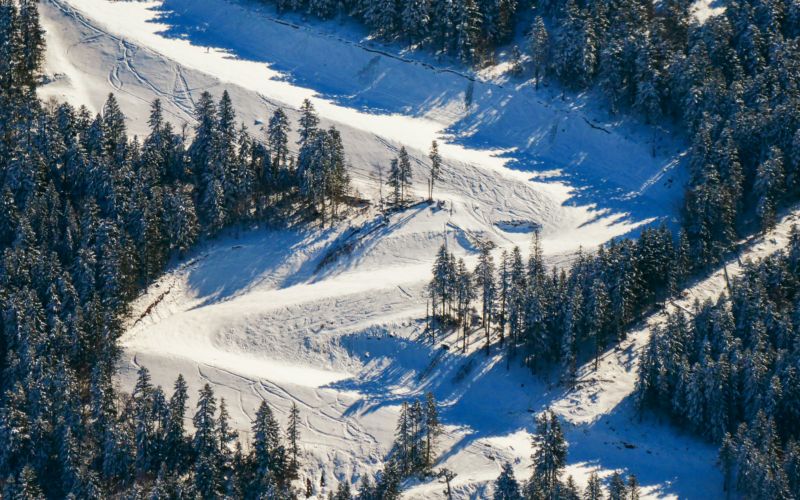
12 November 2025
Sustainable management practices for mountain forests: promoting environmental protection and driving local economic performance
Sustainable forest management has a key role to play in shaping the future for mountain towns and communities. In an effort to address the challenges of global warming, soil erosion ...
Environment

17 September 2024
How Are Mountain Resorts Responding to Climate Change?
Mountain resorts didn’t wait for the Avenir Montagnes Plan to address climate change. They have always taken a proactive stance to preserve their environmental assets. They have strengthened their sustainable ...


